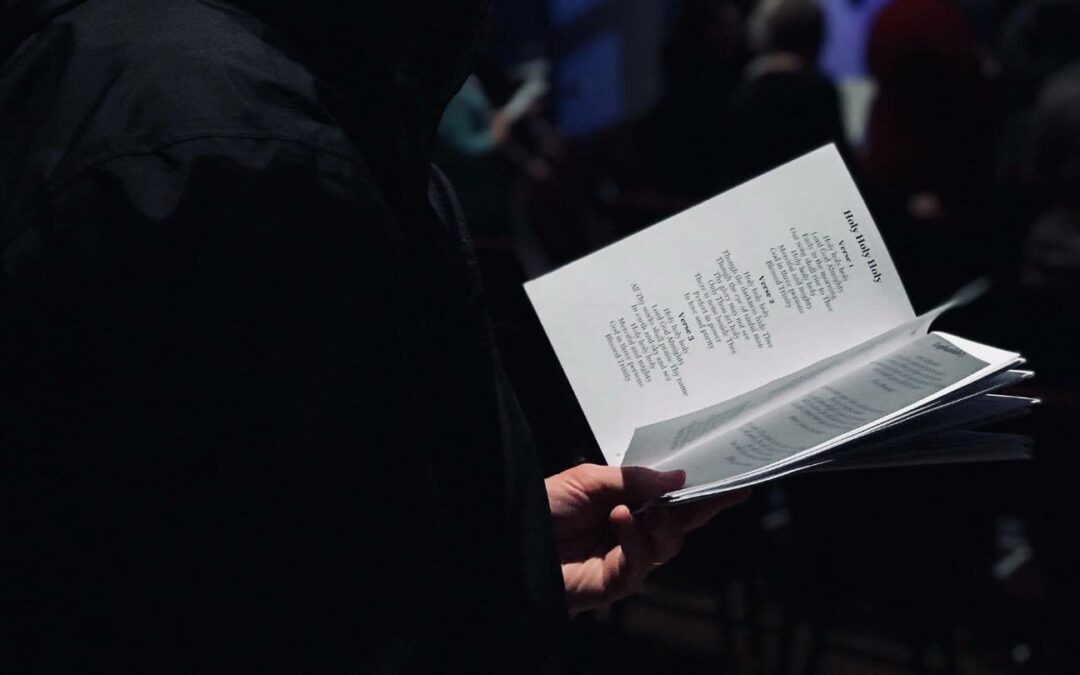Music has the unique ability to transcend our circumstances and reach our emotions. When words fail, music somehow fills the empty space.
This is especially true for Christians when it comes to hymns. Hymns have a grounding quality that connects us to the roots of our faith. They allow us to express worship with the church body, and the lyrics tend to stick with us long after the church service ends.
In a culture that values the latest and greatest, it’s easy for believers to forego hymns for contemporary worship songs. But failing to include hymns in modern church services keeps Christians from experiencing the theology in songs long treasured by believers who have come before us. Unlike contemporary worship songs today, singing truth that has been affirmed by saints for hundreds of years further connects us to something bigger than ourselves.
If you’re new to the faith, you may not be familiar with many hymns. Read on to discover 10 timeliness hymns for the local church.
“It Is Well with My Soul” by Horatio Spafford
Few hymns can soothe a suffering soul quite like “It Is Well with My Soul.” Horatio Spafford penned this legendary hymn in 1873 following the loss of his four daughters to a shipwreck.
When peace like a river, attendeth my way,
When sorrows like sea billows roll;
Whatever my lot, Thou hast taught me to know
It is well, it is well, with my soul.
“Great is Thy Faithfulness” by Thomas Chisholm
Inspired by Lamentations 3:22-23, this hymn teaches believers to continually look to the Lord for his new mercies.
Summer and winter and springtime and harvest,
Sun, moon, and stars in their courses above;
Join with all nature in manifold witness,
To Thy great faithfulness, mercy, and love.
“Jesus Paid It All” by Elvina M. Hall
Hall penned the lyrics to this classic after hearing a sermon on the atonement for sin through Christ’s death. The hymn was born after partnering with her church organist to put the lyrics to music and has been sung in churches ever since.
Jesus paid it all, all to him I owe,
Sin had left a crimson stain;
He washed it white as snow.
“Be Thou My Vision” by Saint Dallán Forgaill
Based on an Irish poem dating back to the sixth century, this hymn spans the Atlantic and is popular in churches in the United Kingdom and North America. The original poem was a prayer of protection using symbolic phrases drawn from Ephesians 6:16-17.
Be Thou my Vision, O Lord of my heart;
Naught be all else to me, save that Thou art.
Thou my best Thought, by day or by night,
Waking or sleeping, Thy presence my light.
“To God Be the Glory” by Fanny Crosby
Originally most popular in the United Kingdom, Bill Graham is noted with making this hymn mainstream in the United States through his crusades. The song is now familiar worldwide and praises God for His plan of salvation through Jesus.
To God be the glory, great things He hath done;
So loved He the world that He gave us His Son,
Who yielded His life an atonement for sin,
And opened the life gate that all may go in.
“Oh, For a Thousand Tongues” by Charles Wesley
For Charles Wesley, one tongue wasn’t enough to sing of God’s praise. If he had a thousand tongues, he’d use each to sing of his adoration for the Lord. Originally boasting 20 stanzas, modern hymnals condense the song to six or seven.
O For a thousand tongues to sing
My dear Redeemer’s praise!
The glories of my God and King,
The triumphs of His grace!
“Holy, Holy, Holy” by Reginald Heber
Heber draws on Revelation 4:1-11 to help us marvel at the majestic trinity.
Holy, holy, holy! Lord God Almighty!
All thy works shall praise thy name in earth, and sky, and sea;
Holy, Holy, Holy! Merciful and mighty,
God in Three Persons, blessed Trinity!
“Take My Life and Let It Be” by Frances Ridley Havergal
Surrendering a life to Christ is the basis of Havergal’s foundational hymn. An anthem for all believers, “Take My Life and Let It Be” teaches us what it means to entrust our lives to Jesus.
Take my life and let it be
consecrated, Lord, to thee.
Take my moments and my days;
let them flow in endless praise,
let them flow in endless praise.
“When I Survey the Wondrous Cross” by Isaac Watts
Written to prepare a congregation for the Lord’s Supper, Watts shows us that reflecting on the cross of Jesus draws us to his never ending mercy.
When I survey the wondrous cross
On which the Prince of glory died;
My richest gain I count but loss,
And pour contempt on all my pride.
“In Christ Alone” by Stuart Townend
Not all hymns are centuries old. This sure-to-be classic was written in 2001 and commemorates the life, death, and resurrection of Jesus Christ.
In Christ alone my hope is found,
He is my light, my strength, my song.
This Cornerstone, this solid ground
Firm through the fiercest drought and storm.
What heights of love, what depths of peace;
When fears are stilled, when strivings cease.
My Comforter, my All in All,
Here in the love of Christ I stand.
. . .
This list is just a starting point; there are countless other incredible songs to explore. Hymns have a unique ability to help bridge the gap between what we know is true in our heads and what we feel in our hearts. Making hymns a part of your life is a wonderful way to enrich your personal theology and expand your understanding of God’s redemptive love.
